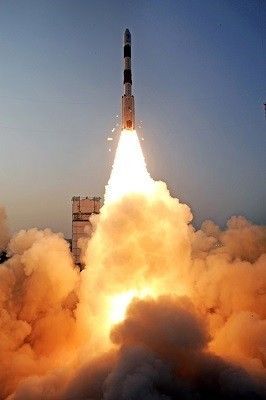China Successfully Launches Two Satellites Into Orbit: Western Observers Believe They Are Spy Satellites
The Launch Was Not Announced Publicly and Came as a Shock

On Monday, China successfully launched two satellites into orbit. The first was the Yaogan-21, remote sensing satellite and the second was launched from the Taiyuan Satellite Launch Center. It was reported that these satellites will send across data on natural resources and disaster management and will also relay information on smart satellite experiments.
Xinhua news agency reported that the two satellites were launched into orbit by the Long March-4B rocket. The satellites were sent in the rocked and were placed into "sun-synchronous orbit." The Yaogan-21 remote sensing satellite was launched into preset orbit at 11:22 am, local time. Another satellite, Tiantuo-1, was also launched. The latter is a 67-kilogramme satellite, designed and built by the National University of Defence Technology. The purpose of this is to track moving objects and record them in motion. For this, the satellite has four video cameras.
The Chinese government stated that the Yaogan-21 will be used for, "Scientific experiments, natural resource survey, estimation of crop yield and disaster relief." It has an electro-optical sensor. The second satellite is reported to be used particularly for tracking, has a built-in system called Automatic Identification System (AIS) that can locate the ships at sea and also track them in their path.
While this success has been viewed joyously in China, Bill Ostrove, a space industry analyst, said that the satellites are believed to be spy satellites, and he also said that many Western sources also claim it to be so. These spy satellites, he added, "Aims at providing intelligence to the Chinese military."
The launch was a very quiet affair. It is the second launch in the month of September and was not announced publicly, just like the first launch. In December 2013, a launch was set as a joint project between China and Brazil, but it failed at the third stage, after which launches were slowed and investigations were conducted into the reason behind the failure. In August, the launches began at a normal pace again.
The CBERS-4 is the next satellite in the series and is set to be launched in December 2014.
This is the 193rd success mission for China's Long March rocket family. It has also been reported that a few more launches will be conducted by Beijing before the end of 2014.
The launched satellites and the space launch schedule of events for September can be viewed here.





















